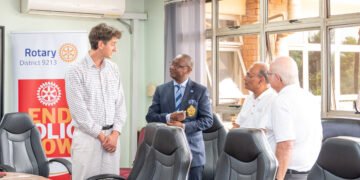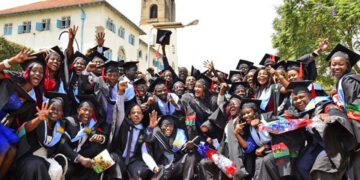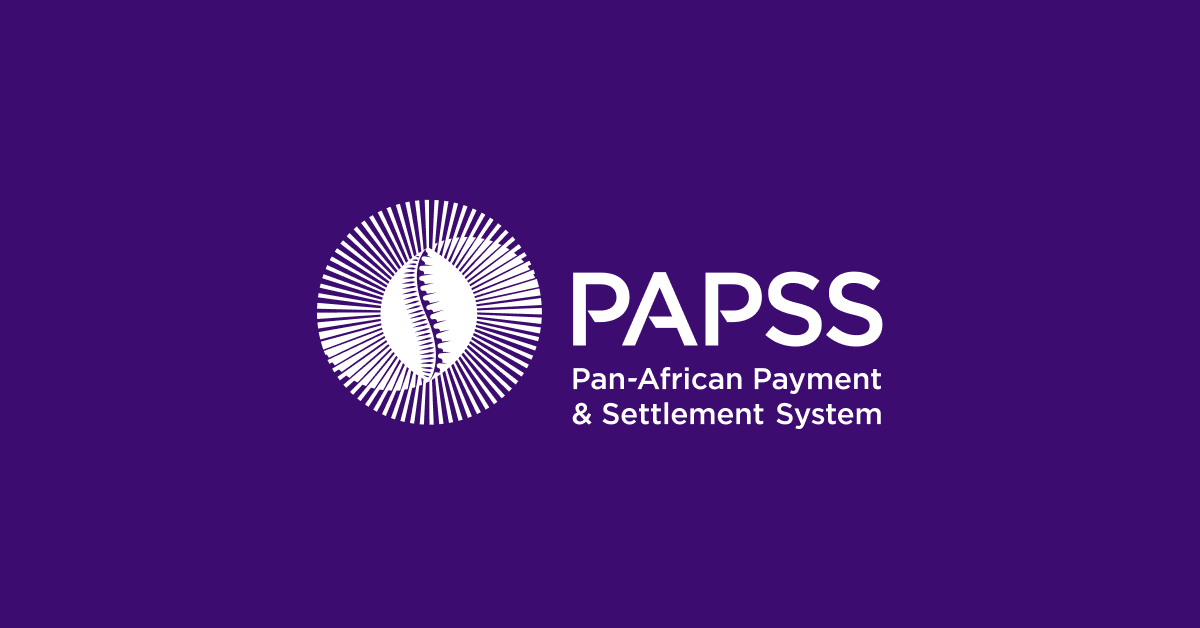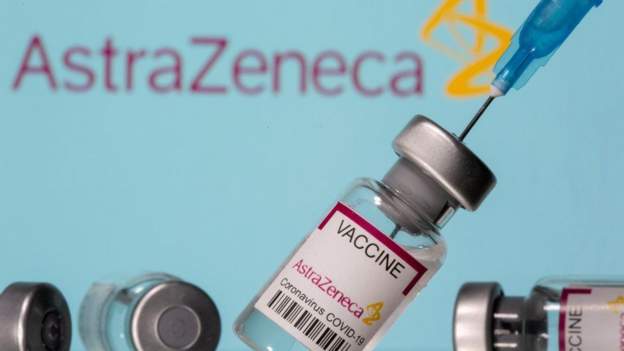Countrymen and Countrywomen,
Greetings to all of you and congratulations on going through Christmas and the end of the year well.
Those who died in the course of the year, we pray to God to rest their souls in eternal peace and also help their families and communities to cope with the loss.
We pray to God to help them manage to succeed in life even with the departure of their loves ones. As far as the sick are concerned, we pray to God to give them quick recovery.
On this occasion, I will raise only nine issues. These are:
1. A brief comment on the economy;
2. Youth development and employment;
3. Crime;
4. Political discipline;
5. Regional integration;
6. Corruption;
7. Political leaders as examples in wealth creation;
8. Irrigation; and
9. Land evictions.
As the various officials of the State have been saying recently, the economy of Uganda is, once again, on track to grow at a fast rate.
In the last 32 years, since the advent of the NRM, the economy has always been growing at the rates of 6.3% and above per annum except for the years 1986/1987, 2012/ 2013.
One of the causes for that deceleration was the mistake of the 7th Parliament that delayed the dam of Bujagali in the year 2002.
It is that mistake that caused the power shortages of 2005 up to 2012.
That mistake caused the slow-down of the economy referred to above.
The other cause has been the occasional bad weather in the form of inadequate rains like in the years of 2016 and 2017.
Even with these dives, the average rate of growth of the economy ever since 1986 has been 6.3% per annum.
In some years, the growth rate went up to 11% per annum. This was in the years 1994/95/96.
These mistakes happen, except, of course, for the weather, in spite of my advice.
In the Constitutional Review, the Ugandans should address the issue of a discordant Executive and Parliament.
In UK, if the Prime Minister and the Parliament do not agree, both of them resign and new elections are held so as not to cause paralysis in the development plans of the ruling political parties.
It ensures continuous accountability through representation.
Anyway, I managed to handle all those diversions and in 2006, caused the government to give due prioritization to electricity development and the tarmacking of roads.
You can now see the impact. That little rectification effort of 2006 has now resulted into pushing the electricity generation capacity of the country to 1,800 megawatts by 2020 compared to the 60 megawatts of 1986.
Just on account of that, the economy last financial year (2017/18) grew by 6.1%, above the previously projected level of 5.5%.
Financial year 2018/2019 will grow at the rate of 6%. Yet the cost of electricity is still high by default, on account of the costly money that was used in Bujagaali.
The cost of Bujagaaali is 13.38 American cents per unit without subsidy. After waiver of corporate taxes the Bujagali tariff reduced to 10.5 American cents per unit and with the debt refinancing, the Bujagali tariff has reduced to 8.5 American cents.
That of Nalubaale (Njeru side) and Kiira (Jinja side) is 2 American cents, Karuma will be US4.97cents and Isimba will be US 4.16cents per unit.
This is a distortion we are struggling to solve so that industrial power is at 5 American cents. I am told that UMEME is part of the distorters. The distribution costs by UMEME account for 34% the total cost of power to the end user.
In Ethiopia, I am told that the transmission and distribution costs account for only 8% the total cost and in Kenya, it accounts for 11% the total cost.
Nevertheless, in spite of all these distortions in the power sector, the economy is already growing at the rate of 6.1%as shown above.
We are going to end this distortion in the power sector; working with Kenya and Tanzania, the issue of transport costs will be addressed by developing the rail transport and water transport; and, through UDB, address the issue of the cost of money for manufacturing, agriculture and some of the services, such as hotels and the entertainment industry.
Therefore, soon, after a protracted struggle for economic recovery eversince the low level of 1986, we shall have the “3” important “Ls” and one important “C”. The “3” important “Ls” are the low cost of electricity, low cost of transport and low cost of money. The important “C” is the comparative advantage in the cost of labour. I do not want to talk of the low cost of labour because, in a healthy way, the cost of labour in Uganda will rise as the economy expands.
Nevertheless, the remaining challenges notwithstanding, on account of the successes we have achieved in power generation as well as on account of the previous policy reforms (privatization, liberalization, security of person and property, mass education, etc.), the economy has already resumed its high-trajectory of growth of 6% and above.
I even predict that it will hit double-digit rates because Uganda has got everything if all the elements are optimally used. The results are exciting.
The Foreign Exchange earnings, for instance, were as follows in 2017/18 financial year:
(a) Export of goods – US$ 3,536billion
(b) Export of services – US$ 1,832billion
(c) Remittances by Ugandans
working abroad – US$ 1,244million
———————
Total – US$ 6,612billiion
===============
This is as compared to US$7,692 billion that we spent on imports of goods and services in the financial year 2017/18. Regional exports were interesting.
Uganda exported to the region (EAC and COMESA) goods and services worth US$3,943billion.
We imported from the region goods and services worth US$1,673billion.
We, therefore, had a trade surplus of US$2,270billion, many Non-tariff trade barriers (NTBs) still found in some of the Member States notwithstanding.
With the numerous new factories being commissioned, these earnings will grow.
The exports to the region are: steel and steel products; dairy products; beverages; electronics; grains (maize, millet, rice, beans); fruits and vegetables; spices; coffee; tea; sugar and confectionery; plastic products; etc.
The exports to international destinations beyond the region are: gold, coffee, cocoa, tea, fish and fish products, cotton flowers, cobalt, fruits and vegetables.
On the issue of the youth, which is number two on my list, I am very optimistic about their future.
Why? It is because we have already laid quite a foundation for them. The youth of the NRM time were first ante-natally supported by attending to the health of the mother while still pregnant.
When the baby was born, we immunized the child. That is how the population of Uganda jumped from 14 million to 40 million people today ─ almost all the NRM youth are free of polio and measles until very recently when I saw a report about some careless mothers that failed to take children for immunization and they caught measles.
That outbreak of measles should alert everybody what the consequences of negligence are. We soon introduced Universal Primary Education (UPE) and Universal Secondary Education (USE) which have raised the level of the adult literacy rate from 43% to 75%.
The gaps we still have are: skills for many of these youth, jobs, wealth creation and, sometimes, discipline. In my many State of the Nation addresses, I have told the country that projects have already started that can convert un-employed youth to job creators and property owners.
Through grants or low-cost revolving loans, these programmes will be expanded. At the same time, the skilling of the youths in technical schools or through special courses, will continue.
These youths will be helped to produce goods and services for import substitution and export promotion in addition to the many internal distribution products and services they are already producing.
I salute the many youth that flock the worship centres to pray to God and to listen to the scriptures. I only caution them on illusions of miracle wealth.
“Lubaale mbeera, nembiro kwotadde”, our ancestors pointed out long ago. It translates as: “God helps those who help themselves”. Similarly, I advise those who flock to drinking centres and take narcotic drugs to seek for help.
The NRM leaders in the localities should seek out these youth and help them with advice wherever possible. Another advice to the youth is frugality.
Do not be extravagant and showy. Be frugal, simple and hardworking. As a youth, I led my family and my area in modernization and wealth creation, away from the ancient traditional ways.
This was on top of the political work we were engaged in. We never wasted money on alcohol, luxuries, reveling (ebinyumo)or foreign travel. The youth who listen to our advice, will succeed.
The third issue I would like to comment on is crime. In my address to the Parliament of the 20thJune, 2018, I outlined the 12 action points that we are undertaking and we shall undertake to immunize our country against the crime that spiked up especially in the towns.
The main thrust of my address was to upgrade the technological base of the country in the anti-crime fight.
Those upgrades are going on. Nevertheless, even using the old Police methods of relying on public vigilance, quick response from the Police, proper management of the crime scene, etc., the Police force is already achieving success in dealing with the criminals.
In my social-media message of 20thDecember, 2018, I gave some details. During the current festive season, the Police have told me that 23 offences were reported on Christmas day.
There were 11 murders, one victim of mob justice, two incidents of murder by shooting, one suicide case, one defilement, one suicide by shooting, one attempted murder, one incident of accidental death by fire, one case of vandalizing Umeme cables by thieves, one case of kidnap but victim rescued and one case of arson.
Therefore, according to the Police, the crime incidences were 23 during the just passed Christmas of, mainly, isolated crimes that are not organized.
When I looked at the 23 incidents of crime reported on the 25th of December, 2018, the majority of them appeared to be straight forward crimes resulting from fights, suicides, etc., where suspects are easy to determine.
There are the cases of a teacher (female) murdered at the beach in Jinja, an old woman murdered in Kabonera, Masaka, a man shot dead in the Nakivaale refugee camp plus one or two others that may need more scrutiny.
In the case of Kabonera, Masaka, the local Police leaders need to explain why they delayed to respond. I am demanding expeditious accountability.
It seems, therefore, that, otherwise, our vigilance is working. In any case, by the end of this New Year, our anti-crime posture will be totally different.
On top of the vigilance of the public and the promptness of the Police, we shall have added the technological means we are developing. Crime will be defeated.
The fourth issue is political indiscipline by some actors. Our languages are more precise when it comes to describing actions (verbs). In Luganda, for instance, there are the following words: Okuvuganya, Okurwaana, Okuremesa, Okutabura, Okuseketerera, Okusanyawoor Okutemura.
Okuvuganyais a peaceful way of putting forward alternative ideas about running society. If A has built 100 schools in the area, B can, without telling lies, truthfully say that, with better discipline and more frugality, he could have built 150.
Then the debate can go on peacefully until election time when the electorate can decide on the two options.
However, to behave in a double-faced way where you have one leg in constitutional politics (Parliament, Municipality, District council) and another in un-constitutionalism (Okuremesa, Okuseketerera, Okutemura, etc.,)cannot be allowed.
Therefore, those who are not clear on this point, should get it clearly. Ugandan patriots have invested alot of energy in creating stability in Uganda.
Nobody will be allowed to destabilize this. You heard how our economy is growing. Nobody should expect that we shall tolerate anybody diverting the country with indiscipline verging on criminality.
The fifth point is corruption. There is no way the NRM can fail to defeat corruption.
The NRA/UPDF promptly stopped extortion on road blocks, extra-judicial killings by the army, sectarianism, poaching of wildlife in the National Parks and the brutalizing of the wanainchi.
Power over public finances; public contracts; public service jobs; etc., was left with five officials: the Permanent Secretary in the Ministry; the Chief Administrative Officer (CAO) in the District; the Town Clerk in a Municipality; the Gombolola Chief in a Sub-county; and the Financial Controller in an autonomous, self-accounting institution such as a University, an Agency, etc.
In order to check on these, we created new institutions, new instruments and new laws ─ such as the IGG, the leadership code, etc. In spite of all these, corruption has been rampant.
The NRA/UPDF cadres have not been involved directly in this fight against corruption.
We have been relying on the officers from the institutions we inherited in 1986 ─ the Civil Service, the Judiciary, etc. In 1986, we could not have done much on this issue.
First of all, we did not have enough educated man power to man agencies that needed high levels of education.
Secondly, however, even if we had had manpower, it would not have been wise to displace the old civil servants and replace them with our own cadres.
We would have been unfair to the incumbents. It is good that we gave them a chance, which many have misused. Fortunately, on account of the massive education programmes we have rolled out, we have a very large number of educated people that are ready to replace the corrupt civil servants.
I have created a new unit headed by Lt. Colonel Edith Nakalema. This is not to replace the IGG; it is in order to assist her.
There is a 24 hours call centre where people can report bribery efforts, embezzlement, land evictions, crime, etc.
The unit, then, contacts the Police, the IGG so that they handle the cases. They, then, help the IGG, the Police IGP, the Chief Justice to monitor the actions of their juniors and they also report to me. This corruption is easy to defeat for the NRM.
The sixth problem is land evictions. These, again, will stop. I will directly lead the struggle against illegal land evictions.
Most of the people being evicted are either the elders I led in the Resistance Wars or their descendants. They did not abandon the NRA and I will not abandon them.
The four categories of the legal bibanja owners are those whose ancestors were found on that land; those allowed on that land by the land owner or his agent; the bonafide occupants that were on that land by 1983; or the ones who bought or inherited from any of the four (4) categories.
There is even a fifth category. The one who is not among the 4 categories above but has been on this kibanja for 12 years without anybody challenging him/her.
We call this ownership by “adverse possession” or rather the lawyers call it so. We are liaising closely with the CJ and my lawyers will sue all legal means to defend our comrades in the struggle or their descendants.
The message to the landlords is that I prefer a win-win way. That is why I supported the abolition of the Idi Amin Decree of 1975.
We cannot, however, tolerate the unfair treatment of our comrades in the struggle ─ the Bibanja owners.
Seventh, I would like to salute all the elected leaders of the Local Councils and the NRM structures.
I salute you for your voluntary spirit of offering to lead the people that elected you and for, sometimes, leaving unattended your private affairs in order to attend to the issues of the population.
This sacrifice should not go unnoticed. Besides, it is crucial that you lead by example.
It says in the Book of Mathew 5:16 that “let your light so shine before men that they will see your deeds and praise your Father in Heaven”. Therefore, I want you to be examples in wealth creation.
While, therefore, OWC for the whole population, I want to propose a SACCO, district by district, that will cater for all the elected leaders of the LCs and the NRM structures so that they can be examples to the others; but they will also banish poverty in their homes.
Since the large numbers do not allow the payment of salaries, this is the only affordable way of supporting these leaders, past and present. Once a Leader, always a Leader.
Therefore, I want you to be examples in wealth creation. While, therefore, OWC for the whole population, I want to propose a SACCO, district by district, that will cater for all the elected leaders of the LCs and the NRM structures so that they can be examples to the others; but they will also banish poverty in their homes.
Since the large numbers do not allow the payment of salaries, this is the only affordable way of supporting these leaders, past and present. Once a Leader, always a Leader.
The eighth point is that, in order to further stabilize our economy, we are now beginning the long journey of weaning (okuchutsya)our agriculture from rain-fed agriculture to irrigation.
We are using three methods of agriculture: gravity based irrigation like the Doho one using River Manafwa and Mobuku using River Mobuku; micro solar pumping from a water source to a high elevation, then gravity takes over; and bulk water transfer from a big source like the River Kagyera or Nalubaale (L. Victoria) to a high elevation and, then, gravity takes over.
The micro irrigation projects that are either operational or planned will be 190 across the country. (Annex I
The new mega-projects that are on-going/planned are:
(i) Doho phase II in Butalejja district;
(ii) Mubuku phase II in Kasese district;
(iii) Wadelai in Nebbi district;
(iv) Tochi in Oyam district;
(v) Ngenge in Sebei zone;
(vi) Atari (Bulambuli and Kween);
(vii) Kabuyanda (Isingiro);
(viii) Amagoro (Tororo district);
(ix) Matanda (Isingiro);
(x) Nyimur (Lamwo);
(xi) Kawumu in Luwero district;
(xii) Katete in Kanungu district;
These are in addition to the old one of Doho, Mobuku, Olweny and Agoro.
We have encouraged solar powered water pump producers to either assemble or manufacture those pumps here so that we can roll them out en masse for individual farmers to buy them and immunize themselves against the erratic rains.
The ninth and final point is the issue of African integration in order to guarantee our prosperity.
When we produce goods and services, which big market will absorb them? The more people buy from us, the more prosperous our businesses become.
That is why the NRM insists on patriotism within Uganda, Pan-Africanism in Africa and international trade on the basis of comparative advantage globally.
Therefore, in 2019, I hope to work with the fraternal peoples of Kenya, Tanzania, Rwanda, Burundi and South Sudan to consolidate the unity of East Africa.
Additionally, through COMESA and AU, we shall work with the wider Africa to build the African Common Market.
I wish all of you a happy and successful 2019.
















